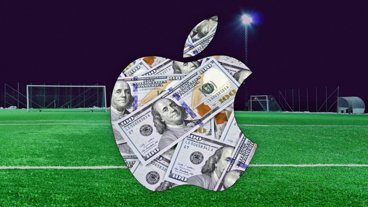Redesigned Apple TV interface, possible new hardware in the works
Author Nick Bilton on the Times' Bits blog said it is not clear whether a new hardware product would accompany the software redesign, but it is believed Apple could base the software on its lightweight iOS operating system, which powers the iPhone, iPad and iPod touch. Citing one source, it was said that Apple recently hired several user interface and graphic designers who have a background in broadcast design for television.
"Another person, who recently left Apple and was involved with the company's television group, said some of the more advanced work on the next version of the TV is not taking place within the Apple TV group, but within another design group in the company — this could signal an entirely new product," Bilton wrote.
Rumors of new living room hardware arrived just as analyst Gene Munster with Piper Jaffray issued a note to investors in which he said the addition of an HDMI port to the Mac mini suggests that Apple is interested in selling its own Internet-connected HDTV. Munster believes such a product could hit the market within 2 to 4 years.
The sources told the Times that Apple realizes "the battle for the living room is going to be arduous, and the company must get it right the next time."
Apple has famously said that its Apple TV product is simply a hobby, as there isn't a viable market for set top boxes. Last month, Apple Chief Executive Steve Jobs said the market doesn't exist because cable companies subsidize set top boxes for prices so low that consumers are unwilling to pay for a separate one.
The prospect of a redesigned, low-cost, iOS powered Apple TV was first rumored in May, when a report from Engadget alleged that Apple will release hardware based on its custom A4 processor found within the iPhone 4 and iPad. That device would reportedly have just 16GB of storage, but would cost only $99 and be capable of playing and streaming 1080p high definition video.
That rumor suggested the new hardware would be small, with only a power plug and video out. It was described as "an iPhone without a screen."
 Katie Marsal
Katie Marsal










 Andrew Orr
Andrew Orr
 Malcolm Owen
Malcolm Owen

 William Gallagher
William Gallagher

 Mike Wuerthele
Mike Wuerthele
 Christine McKee
Christine McKee







